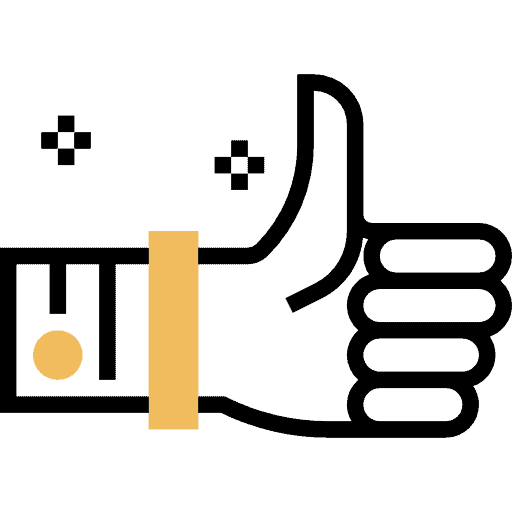INTRODUCTION
Soft skills, also called people skills or personal skills, are a set of essential competencies that can improve a person’s ability to work with others and even influence how they perform their job. For organizations, teaching soft skills to employees can mean an improved working environment and better business results. But what exactly are soft skills and how do you develop soft skills in the workplace? In this blog post, we’ll cover everything you need to know from the basic definition of soft skills and hard skills to the benefits of soft skills training and soft skills training examples to help you better develop your team.
WHAT ARE SOFT SKILLS?
Soft skills are sets of abilities that reflect how well a person gets along with others around them and how well they’re able to identify and address problems.
Simple enough, right?
In fact, soft skills are difficult to define, measure, and organize because, as their name suggests, they’re not hard or tangible and many are related to each other. There is no definitive list of soft skills, and soft skills tend to overlap with each other. However, the one constant at the heart of soft skills training is communication. It’s easy to take for granted that professionals understand how to communicate with each other effectively. But if you’ve ever zoned out during a co-worker’s 90-minute PowerPoint presentation or misinterpreted the tone of an email, then you know this isn’t the case.
Solid communication involves more than just responding to messages or giving presentations. It calls for active listening, high levels of comprehension, and reading social cues and body language. Soft skills highlight the difference between listening to what someone has to say, as opposed to merely hearing them speak; the difference between making a brief, well-thought-out statement and launching into a rambling monologue.
Professionals use soft skills every day, most of the time without consciously thinking about them. When an employee puts their phone away so that they can focus on what their co-worker is saying, they’re using active listening. When someone owns their mistake, they are demonstrating accountability. When you make your “To-Do” list each day, you are planning and prioritizing. These skills don’t always come naturally but they can be taught.
No one is completely devoid of soft skills, and no one is perfectly adept at using soft skills either. Everyone has room to improve.
Soft Skills vs. Hard Skills
In order to achieve success in any venture, a professional has to possess both soft and hard skills. Hard skills are traits that can be measured and dissected easily because they operate on a binary scale. Either someone can write JavaScript code, or they can’t; either they can balance an account properly or they can’t. These hard skills help people get their foot in the door because they let employers know a person has the required abilities to perform a job on a base level.
Where hard skills end, soft skills begin.
While there are thousands of professionals with the same exact education background and level of intelligence operating in the workforce, no two people have the exact same impact at their job. In fact, studies indicate that soft skills account for roughly 85% of a person’s success over the course of their career. And employers rightly value employees with soft skills.
74% of hiring managers rate a candidate’s listening skills above all other abilities when they begin the interview process.
Some may believe that hard skills are the only “teachable” skills, but this just isn’t true.
It is possible to train and hone soft skills, and professionals can take courses on leadership just as they would for computer programming.
Leadership, like any other soft skill, is not a genetic trait or a birthright, but some people are born leaders. You can see it on the playground with children at recess. For those people who are not natural leaders, the ability can be improved through training, hard work and focus.
8 POPULAR SOFT SKILLS TRAINING FOR EMPLOYEES
With many different types of soft skills training programs, we’ve narrowed our picks down to the essentials. Here are some of the best soft skills you should be training your employees on:
| COMMUNICATION
Good communication is beneficial for any role so it’s no wonder it’s at the top of our list as one of the best soft skills to develop. Communication skills are not just about speaking well and conveying your message clearly, but also about practicing active listening – listening intently to someone so you can respond meaningfully. This is key to healthy workplace relationships, whether with colleagues, potential clients, or existing customers.
| TEAMWORK
Knowing how to collaborate with others may seem like a basic skill, but there’s a reason you’ve probably been taught this soft skill since your early school days. Simply put, we constantly find ourselves having to interact with others and develop trustworthy relationships. By training your employees in this soft skill, you set them up to work toward team and company goals in unison.
| TIME MANAGEMENT
With never-ending backlogs and limited hours in a workday, time management skills are relevant to any job. Training this soft skill will set your employees up for better productivity and work-life balance. As a result, they’ll also have more room and focus to achieve their business and personal development goals.
| LEADERSHIP
You don’t have to be in a managerial position to benefit from leadership skills. Any role that requires you to delegate tasks, provide guidance to teammates or customers, or demonstrate ownership of your tasks could help you develop into a leader. At the same time, training employees in this soft skill empowers them to receive feedback that can sometimes be tough to hear but is necessary for performance improvement.
| NEGOTIATION
Knowing how to negotiate well is an important soft skill for roles that focus on reaching agreements and closing deals. Sales positions are a common example, where Account Executives may need to negotiate valuable contracts with prospective customers in order to reach a mutually beneficial deal.
| PRESENTATION SKILLS
Delivering a successful presentation is about more than just having visually pleasing slides. It’s important to know how to articulate your key points in a way that keeps your audience engaged throughout the presentation, all while making sure they develop clear takeaways.
| EMOTIONAL INTELLIGENCE
Emotional intelligence (EQ) is a key soft skill to learn how to manage your emotions as well as those of other people, which can play a major role in workplace interactions, especially in avoiding misunderstandings. The better you understand yourself and those around you, the better you’ll be able to manage your relationships.
| CRITICAL THINKING
Thinking critically means being willing to analyze facts to form a sound judgment. Often, this also means second-guessing your opinions (and the opinions of others). This is particularly useful for making unbiased, and – therefore – professional decisions.
WHAT ARE THE BENEFITS OF SOFT SKILLS training?
In an increasingly digital world, the demand for hard skills in the workplace is only going up. For example, without the ability to understand HTML and CSS, it’s impossible to become a professional coder. Because of this, it’s easy to overlook the value of soft skills in the workplace.
But soft skills can leave a positive impact that’s far from soft. In fact, soft skills can play a major role in the growth of your business and are also directly applicable to certain roles. Here are some examples of how soft skills training programs adds benefits for employees and the organization:

| HIGHER EMPLOYEE RETENTION
Like all skills training programs, conducting soft skills training is a way of investing in your employees’ professional development. Not only does this show that your organization values its employees, but also ensures your current workforce is up to date with the latest skills needed to perform their roles — which can subsequently reduce your need for new hires.

| IMPROVED CUSTOMER SERVICE
While venturesome service starts with hiring the right people, training your team on relevant soft skills ensures everyone is aligned on standards. For example, it can ensure that all team members understand and express empathy when resolving customer concerns over the phone. It can also ensure your team is equipped with the necessary listening skills to identify customer concerns in the first place. Ultimately, the right soft skills can set your customer service team up to deliver a consistent brand experience for your clients.

| BETTER SALES APPROACH
Negotiation and problem-solving skills are key to a successful sales conversation with a prospective client. Training your sales team in these skills can set them up to identify pain points and respond accordingly. It also ensures your team is prepared to personalize their sales pitch to a prospective client’s unique background and needs.

| IMPROVED COMMUNICATION
Soft skills training helps individuals develop better communication skills, including active listening, empathy, and clear expression. Effective communication is essential for building relationships, resolving conflicts, and conveying ideas.

| LEADERSHIP DEVELOPMENT
Soft skills training can help individuals become better leaders by teaching them skills such as emotional intelligence, decision-making, and motivation. Effective leadership is crucial for guiding teams and organizations toward success.

| STRONGER CUSTOMER RELATIONS
Soft skills like empathy and customer service skills are essential for creating positive interactions with customers and clients. This can lead to improved customer satisfaction and loyalty.

| CAREER ADVANCEMENT
Soft skills often play a significant role in career advancement. Employers value employees who can communicate well, collaborate effectively, and lead teams, making soft skills training a valuable asset for professional growth.

| BETTER PROBLEM SOLVING
Soft skills such as critical thinking and creativity enable individuals to approach problems more analytically and find innovative solutions.

| INCREASED PRODUCTIVITY
Soft skills like time management and organization can boost productivity by helping individuals prioritize tasks, set goals, and manage their workload more effectively.
CHALLENGES OF SOFT SKILLS TRAINING
Soft skill-based training, which focuses on developing interpersonal and personal skills, can be highly beneficial for individuals and organizations. However, it also comes with its own set of challenges:
- Subjectivity
Soft skills are often subjective and context dependent. What works in one situation or culture may not work in another. This subjectivity can make it challenging to define and measure the effectiveness of soft skill training programs. - Resistance to Change
Some individuals may be resistant to change or reluctant to acknowledge the need for soft skill development. Overcoming this resistance and fostering a culture of continuous learning can be a challenge. - Time-Consuming
Soft skill development often requires ongoing effort and practice over an extended period. Participants may find it challenging to allocate time for training amid their regular work responsibilities.
- Evolving Needs
Soft skill requirements in the workplace can change over time due to shifts in technology, industry trends, and societal changes. Training programs need to stay up to date to remain relevant. - Individual Differences
People have varying levels of aptitude for different soft skills, and they may require different approaches to training. What works for one person may not work for another, making it challenging to design a one-size-fits-all training program.
EXAMPLES OF KNOLSKAPE’S SOFT SKILLS TRAINING COURCES
| GIVING AND RECEIVING FEEDBACK
Providing and receiving feedback is a crucial aspect of leadership, but many leaders find it challenging for various reasons, such as fear of damaging relationships, lack of results after providing feedback, power dynamics, and fear of criticism when receiving feedback. To overcome these challenges, it’s essential to establish a safe environment that promotes the art of giving and receiving feedback. This can be achieved through KNOLSKAPE’s simulation-based course that provides learners with the opportunity to practice and refine their feedback skills using a proven and effective framework.
| CRITICAL THINKING FOR BETTER DECISION-MAKING SKILLS
This course helps participants deconstruct, understand and appreciate the various factors that are involved in taking important decisions at work. Through activities, discussions, frameworks and the simulation experience, the participants will pick up the essentials that can help them become even better at employing their CTDM skills.
| BUILDING TRUST
In an era of cut-throat competition and unforgiving deadlines, compromises might be made that should not have been. This course will help leaders to take the right actions to build and maintain trust with customers. After all, faith may move mountains, but it is trust that helps one climb the mountain.
| OVERCOMING UNCONSCIOUS BIASES AT WORK
n a global business environment, leaders must focus on building an inclusive culture by overcoming unconscious biases at work. Biased decisions can cost an organization heavily in terms of business, legal and social capital. This simulation-powered course helps learners identify biases that creep into their thought processes. It establishes a structured approach that they can rely on to make more mindful and objective decisions at work.
TAKEAWAY
Now that you know the advantages of soft skills training, it’s time to consider how to develop soft skills in the workplace. Because soft skills can’t be easily measured and certified, the best way to teach soft skills to your employees is by creating quick resources they can refer to on the job for tips and answers to their questions. For example, you want to learn how to make better decisions at work for yourself and your team. KNOLSKAPE helps you develop the competencies which result in critical thinking and understand the various aspects involved in critically analyzing a situation and taking decisions.
Stay Ahead of the Learning Curve!
Sign up for our free newsletters, including tips to improve workforce capability through technology. We don’t spam!
About KNOLSKAPE
KNOLSKAPE is a global leader in experiential learning with a mission to help organizations and employees become future ready. Using a large award-winning portfolio of simulations aligned with 100+ competencies and cutting-edge talent intelligence, KNOLSKAPE produces stellar outcomes for more than 375+ organizations across 75 countries. Driven by research and thought leadership, KNOLSKAPE offers its products and solutions in a flexible subscription model powered by omni-channel delivery.
©2021 KNOLSKAPE. Developed by: Xenia Consulting